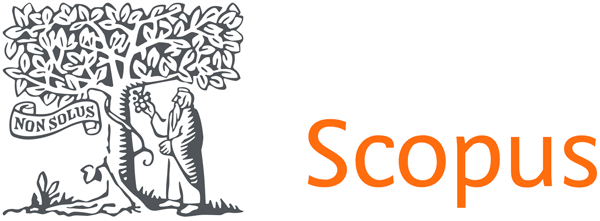ANALYSIS OF THEORY OF PLANNED BEHAVIOR (TPB) IN REALIZING THE HUMAN RESOURCES ENTREPRENEURSHIP (CASE STUDY ON MANAGEMENT STUDENTS OF STIE PELITA INDONESIA)
DOI:
https://doi.org/10.35145/jabt.v2i1.63Keywords:
Intention of Entrepreneurship, Attitude Factor, Subjective Norms, Perceived Behavior ControlAbstract
Increasing number of population and limited employment causes a problem in Indonesia, namely unemployment. This has become the spotlight in various countries, as is the case with Indonesia. The aim of this research is for investigation the factors which have influence students’ interest at entrepreneurship. The models use planned behavior theory. Sampling was done by probability sampling technique with the simple random sampling. Data collection is carried out by distributing questionnaires which are directly distributed to respondents. This research involves 100 students from STIE Pelita Indonesia. This research used regression with t- test and analysis model SPSS 19 computer program. The results show that attitude, subjective norms, and perceived behavior control have influence and significant to intention entrepreneurship (at students of Pelita Indonesia).
References
Agus Suryono, N. (2019). Faktor-Faktor Yang Memengaruhi Minat Berwirausaha. Ekonomi Dan Tenik Informatika, 7(1).
Andika, M., & Madjid, I. (2012). Analisis Pengaruh Sikap, Norma Subyektif Dan Efikasi Diri Terhadap Intensi Berwirausaha Pada Mahasiswa Fakultas Ekonomi Universitas Syiah Kuala.
Ajzen, I. (1991). The Theory of Planned Behaviour. Organizational Behaviour and Human Decisions Process.
Ajzen, I., & Fishbein, M. (2005). The influence of attitude on behavior. Lawrence Erlbaum Associates
Buchari, A. (2013). Kewirausahaan. Bandung: Alfabeta.
Chrismardani, Y. (2016). Theory of Planned Behavior Sebagai Prediktor Intensi Berwirausaha, 10.
Cruz, L. da, Suprapti, N. W. S., & Yasa, N. N. K. (2015). Aplikasi Theory of Planned Behavior Dalam Membangkitkan Niat Berwirausaha Bagi Mahasiswa Fakultas Ekonomi Unpaz, Dili Timor Leste, 12, 895–920.
Darmawan, I. M. Y., & Warmika, I. G. K. (2016). Pengaruh Norma Subjektif , Personal Attitude, Perceived Behavior Control, dan Aspek Psikologis Terhadap Minat Wirausaha (Entrepreneurial Intention ), 5(7), 4660–4689.
Dewanti, R. L., & Abad, T. Bin. (2014). Prediksi minat mahasiswa untuk berwirausaha menggunakan pendekatan Theory of Planned Behavior, 15, 139–150.
Hendriawan, L. T., & Astri, G. (2016). Indentifikasi Attitude Toward Behavior, Subejctive Norm, dan Perceived Behavioral Control Sebagai Faktor Pendorong Berwirausaha (Studi Pada Wirausaha Dengan Tingkat Pendidikan Akhir Sekolah Menengah Atas), 3(2), 1172–1180.
Himawan, A., & Hapsari, D. K. (2017). Jumlah Pengusaha di Indonesia Baru 1,5 Persen dari Total Penduduk. Retrieved September 5, 2019, from https://www.google.com/amp/s/amp.suara.com/bisnis/2017/12/18/142850/pemerintah-genjot- wirausahawan-muda-lewat-entrepreneurs-wanted
Listyawati, I. H. (2017). Pengaruh sikap, norma subyektif dan kontrol keperilakuan terhadap niat berwirausaha pada mahasiswa di Yogyakarta, IV(1).
Machrus, H., & Purwono, U. (2010). Pengukuran Perilaku berdasarkan Theory of Planned Behavior, 12. Munawar, A., & Supriatna, N. (2018). Pengaruh sikap dan motivasi terhadap minat berwirausaha siswa 1, II, 14–23.
Nagarathanam, R., & Buang, N. (2016). The Relationship between Attitude, Intention, and Entrepreneurship Career Choice among Malaysian Indian Undergraduates. Akademika, 86, 43–52.
Sarwoko, E. (2011). Kajian Empiris Entrepreneur Intention Mahasiswa. Ekonomi Bisnis, (2), 126–135.
Sugiharti. (2013). Faktor Determinan Yang Mempengaruhi Minat Berwirausaha Mahasiswa Dengan Menggunakan Pendekatan Theory Plan Behavior. Jurnal Ilmu Manajemen Dan Akuntansi Terapan (JIMAT), 4(2), 109–115.
Suharti, L., & Sirine, H. (2011). Faktor-Faktor yang Berpengaruh terhadap Niat Kewirausahaan (Entrepreneurial Intention). Jurnal Manajemen Dan Kewirausahaan, 13, 124–134. https://doi.org/10.9744/jmk.13.2.124-134
Suyono, N. A. (2019). Faktor-Faktor Yang Memengaruhi Minat Berwirausaha. Ekonomi Dan Tenik Informatika, 7(1).
Suryana. (2011). Kewirausahaan Pedoman Praktis: Kiat dan Proses Menuju Sukses. Jakarta: Salemba Empat.
Utami, C. W. (2017). Attitude, Subjective Norm, Perceived Behaviour, Entrepreneurship Education and Self Efficacy Toward Entrepreneurial Intention University Student In Indonesia. European Research Studies Journal, 475–495.
Wayan, N., Suprapti, S., Nyoman, N., & Yasa, K. (2015). Aplikasi Theory Of Planned Behavior Dalam Membangkitkan Niat Berwirausaha Bagi Mahasiswa Fakultas Ekonomi Unpaz , Dili Timor Leste, 12, 895–920.
Wingdes, I. (2018). Theory Of Planned Behavior dan Minat Wirausaha Pada, (372).
Wijaya, T. (2008). Kajian Model Empiris Perilaku Berwirausaha UKM DIY dan Jawa Tengah. Manajemen Dan Kewirausahaan, 10(2)(2), 93–104.
Www.bps.go.id






